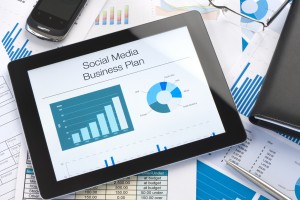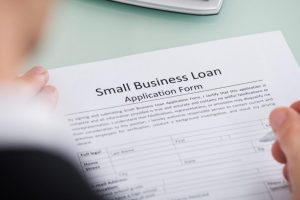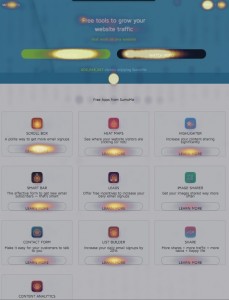For us B2B marketers, LinkedIn seems to be the holy grail of social media marketing. We get involved with groups, publish content and set up our company pages in the hope to ignite lead generation.
In my experience, there are two key goals when creating a LinkedIn marketing strategy; lead generation and driving traffic (usually through content distribution).
After speaking with other B2B marketers, and through my own experiences, I’ve narrowed down some of the most successful LinkedIn marketing tactics. I’ve split this article into two sections: content distribution and lead generation.
LinkedIn for Content Distribution
As I’ve stressed before, LinkedIn is a fantastic platform for B2B content distribution. No matter who the decision maker you’re trying to is, they’re likely to be active here.
One of the most obvious channels are LinkedIn groups. Communities based around industries and professions are useful for those wanting to connect with their peers, but they’re also great for tapping into your target audiences.
For example, if you’re targeting manufacturers you may want to find a group for them in order to build a connection. When joining a group most people just try and throw their content in there without giving any thought to how the group operates or what they want.
Oftentimes, posts that are overly promotional will not be approved. It’s best to add value to the group first, build some authority and then start a discussion around the content you want to distribute before attempting to do so.
Another channel is LinkedIn’s Pulse platform. This allows professionals to publish articles and share their expertise. Most people are simply using it to publish original content, and most articles fail to include a compelling call-to-action.
It does, however, have another use. Take the piece of content you want to distribute and repurpose it.
You can do this in two ways. Either summarise the entire article/piece of content or talk about two or three points that are covered. Then include a call-to-action at the end of the Pulse piece that drives traffic to the original piece of content. Take a look at this article to see this in action.
Finally, sponsored updates can quickly get your content in front of other audiences quickly. When you optimise the targeting properly it can be very cost effective. Check out Igor Belogolovsky’s guide on KISSmetrics to learn a bit more on this.
LinkedIn for Lead Generation
This is why we’re all on LinkedIn. We want to generate leads. A good ROI needs to come from all of our efforts.
Two of the most effective inbound techniques we’ve found are the optimisation of your personal profiles as well as your company pages. Let’s start with the former.
Optimising your profile for greater searchability is a quick task that can have a lot of impact. Start by putting your main keywords in your headline, as well as using a conventional job title.
As a professional, you’ve likely gained new skills during your career. Are these being reflected in the skills section of your profile? Adding more skills can help you become more searchable for certain keywords.
Similarly, if your summary is not optimised you could be losing opportunity here too. Write like a copywriter and include a call-to-action for some extra added impact.
Your company page can also be a great lead generator if it’s optimised effectively. Start with a good header image that highlights a value-driven call-to-action. A whitepaper or other offer can work very well.
Grab the attention of new visitors by making your value proposition clear. It should be blindingly clear within the first two sentences of your company description.
Finally, make sure all of your updates are value-driven. Nobody cares about how many awards have been won or the new hires in your organisation. Everything should be geared towards positioning you as an authority in your market.
Conclusion
We’ve just scratched the surface of the many uses of LinkedIn as a B2B marketing channel. There are several LinkedIn marketing techniques we like to implement as part of our overall strategy, but we’ve highlighted those that will have the most impact for you.
Whether it be content distribution or lead generation there’s a theme that wraps them together. That is adding value to your audience first and compel them to take action second.
At the end of the day, LinkedIn is a platform that houses a series of communities. When you integrate yourself into these communities by adding value, you position yourself as an authority, and with authority you can inspire action.
(185)








